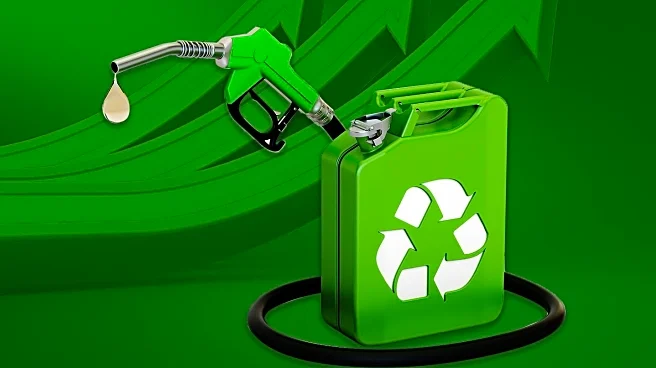What's Happening?
Recycling experts are advising against the common practice of crushing aluminum cans before recycling, as it can interfere with sorting machines that rely on the shape of items to identify materials. Proper preparation of recyclables is crucial to ensure they are effectively processed and reused. This includes rinsing out aluminum cans, removing non-metal parts from small appliances, and ensuring cans are free of food or liquid residues. The heat applied during the recycling process burns away paper labels and adhesive glue, making it unnecessary to remove them from metal cans. However, plastic lids should be separated from aerosol cans before recycling, as they can contaminate the batch during the metal recycling process.
Why It's Important?
Proper recycling practices are essential to maximize the effectiveness of recycling programs and reduce landfill waste. By ensuring items are correctly prepared, individuals can contribute to a more efficient recycling process, which helps conserve resources and reduce environmental impact. Incorrectly prepared recyclables can contaminate entire batches, rendering them useless and increasing waste. This guidance is particularly significant as recycling facilities vary in their capabilities, and understanding the correct procedures can prevent contamination and improve recycling rates. The advice to avoid crushing cans highlights the importance of understanding the mechanics of recycling to support environmental sustainability.
What's Next?
Individuals are encouraged to contact their local recycling facilities to understand specific requirements and capabilities, as these can vary. This proactive approach can help ensure that recyclables are processed correctly and efficiently. Additionally, continued public education on recycling practices can further enhance the effectiveness of recycling programs. As awareness grows, more people may adopt these practices, leading to improved recycling outcomes and reduced environmental impact.
Beyond the Headlines
The emphasis on proper recycling practices also highlights broader environmental and sustainability challenges. As communities strive to reduce waste and improve recycling rates, there is a growing need for standardized recycling processes and public education. This development underscores the importance of individual actions in contributing to larger environmental goals and the potential for community-driven change in sustainability efforts.












